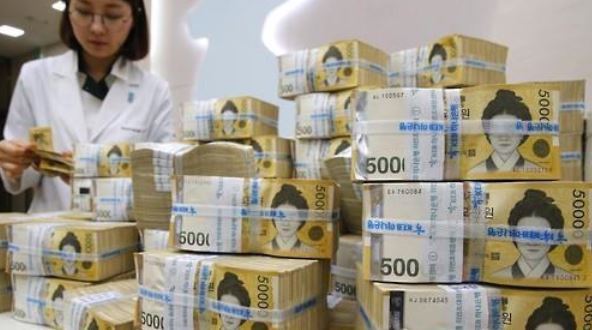Korea wage increase rate halved after financial crisis: report
By YonhapPublished : Sept. 10, 2017 - 17:26
South Korea's wage increase rate has been halved after the 2008 global financial crisis that rocked the country, a market report showed Sunday.
The findings released in the Bank of Korea's latest foreign economic focus report showed that average wage gains dropped to 3.4 percent in the 2014-2016 period from 7.3 percent tallied in 2001-2007.
It cited a drop in overall labor productivity and general aging of the population as causing the decrease.
Data showed that in the wake of the financial crisis wages were for the most part stagnant or gained at a slow pace for several years.
The findings released in the Bank of Korea's latest foreign economic focus report showed that average wage gains dropped to 3.4 percent in the 2014-2016 period from 7.3 percent tallied in 2001-2007.
It cited a drop in overall labor productivity and general aging of the population as causing the decrease.
Data showed that in the wake of the financial crisis wages were for the most part stagnant or gained at a slow pace for several years.

In addition, the findings showed that the decrease for South Korea was actually greater than those that took place in other parts of the world that were similarly affected by the banking sector panic. The crisis was triggered by systemic problems in the US subprime mortgage market.
Wage increases in the United States dipped to 2.3 percent from 3.2 percent in the corresponding period with numbers for the eurozone backtracking to 1.5 percent from 2.9 percent. In the case of Japan, wages actually increased a marginal 0.6 percent from minus 0.4 percent before the crisis.
The BOK report said in the case of South Korea, productivity took a hit as the drop in global trade caused companies to make less investments. Less investment usually translates into weaker business innovation that can stimulate growth.
South Korea labor productivity fell to just 1.4 percent in an initial estimate for 2016 vis-a-vis 3.4 percent growth tallied before the financial crisis.
In regards to the aging population, the rise in older employees at the workplace contributed to weaker wage numbers, the latest findings showed. Many older employees are not full-timers or are subject to wage peaks.
In 2007, the percentage of people over 55 who were employed stood at 18 percent, but this shot up to 25.6 percent last year.
The report, meanwhile, said that while wages should continue to move up in line with inflation expectations, there will still likely be limits.
The slow growth forecast for wages, it said, is one development that could make it harder for the central bank to raise key interests rates moving forward in light of the already heavy household debt problem.
The BOK report then said pushing for wage hikes that reflect economic growth can help improve household earnings and spending that could further contribute to the overall economy.
It said getting more elderly people to find work and strengthening the country's pension program will be helpful along with continued technological innovation and fresh investment to fuel productivity. (Yonhap)








![[KH Explains] How should Korea adjust its trade defenses against Chinese EVs?](http://res.heraldm.com/phpwas/restmb_idxmake.php?idx=644&simg=/content/image/2024/04/15/20240415050562_0.jpg&u=20240415144419)











